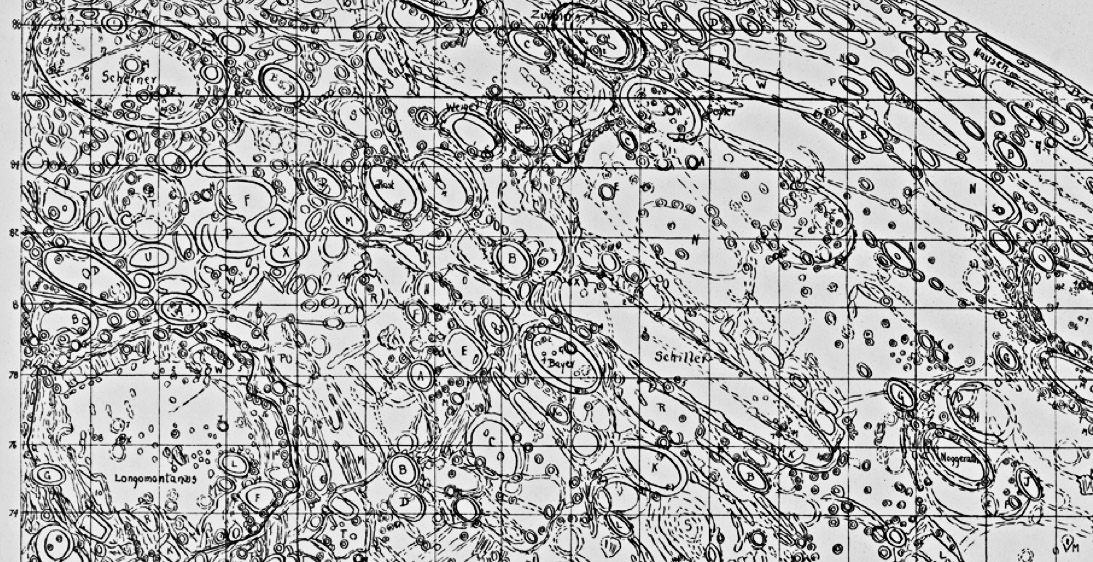Difference between revisions of "June 17, 2013"
| Line 12: | Line 12: | ||
<br /> | <br /> | ||
<strong>Related Links</strong><br /> | <strong>Related Links</strong><br /> | ||
| − | Rükl plate [https://the-moon.us/wiki/R%C3% | + | Rükl plate [https://the-moon.us/wiki/R%C3%BCkl_72 72]<br /> |
<em>[http://lpod.wikispaces.com/21st+Century+Atlas+of+the+Moon 21st Century Atlas]</em> chart 15.<br /> | <em>[http://lpod.wikispaces.com/21st+Century+Atlas+of+the+Moon 21st Century Atlas]</em> chart 15.<br /> | ||
<br /> | <br /> | ||
Revision as of 17:50, 13 October 2018
A Proto-Patrick Moore

image from National Maritime Museum
Notice the Jupiter-like ovals between Scheiner and Longomontanus.
Rebekah Higgitt is curator of the history of science and technology at the National Maritime Museum in Greenwich, England so perhaps it is not surprising that she writes so knowledgeably. In a recent column for the Guardian newspaper she describes a display of the 300" lunar map made by H. Percy Wilkins in 1951. The charts and notebooks (one marked "Secret") are sort of a prehistory for the major exhibit Visions of the Universe at the National Maritime Museum. The column reviews Wilkins' life and achievements and is especially valuable for many links including to Patrick Moore's obituary for Wilkins, a newsreel, online copies of the big map, and even to a Moon-Wiki page. If you are in London, make a trip to Greenwich to see the spectacular color images from Curiosity and Hubble in the main exhibit, and find the corner with the hand-drawn black and white charts from another age.
Chuck Wood
Related Links
Rükl plate 72
21st Century Atlas chart 15.
Yesterday's LPOD: Avani's Ghost
Tomorrow's LPOD: It's a Fake!
COMMENTS?
Register, Log in, and join in the comments.



